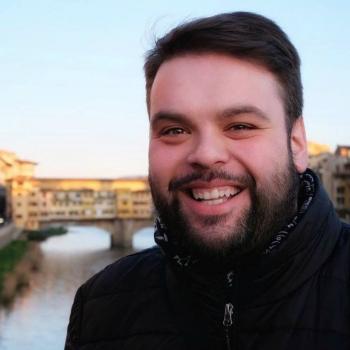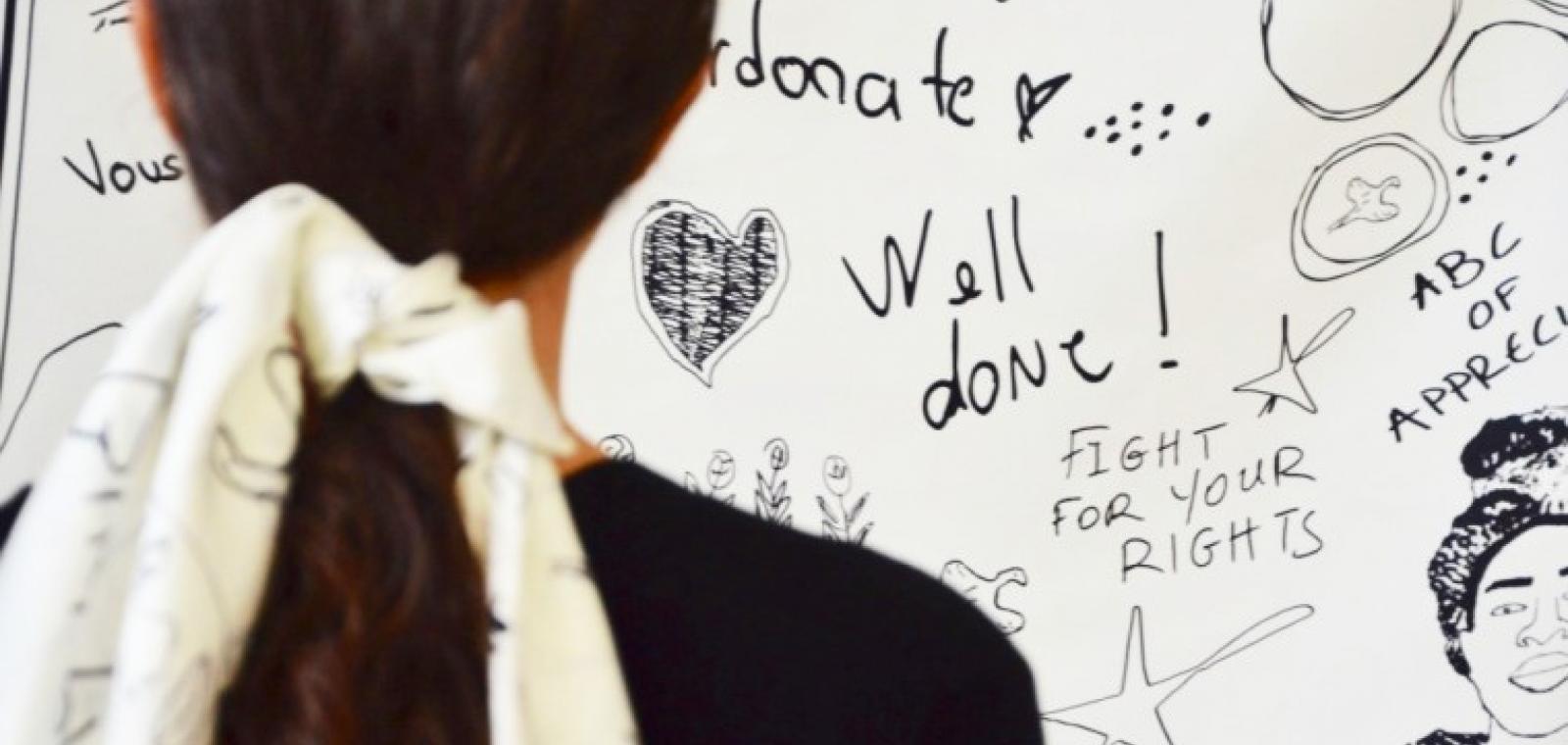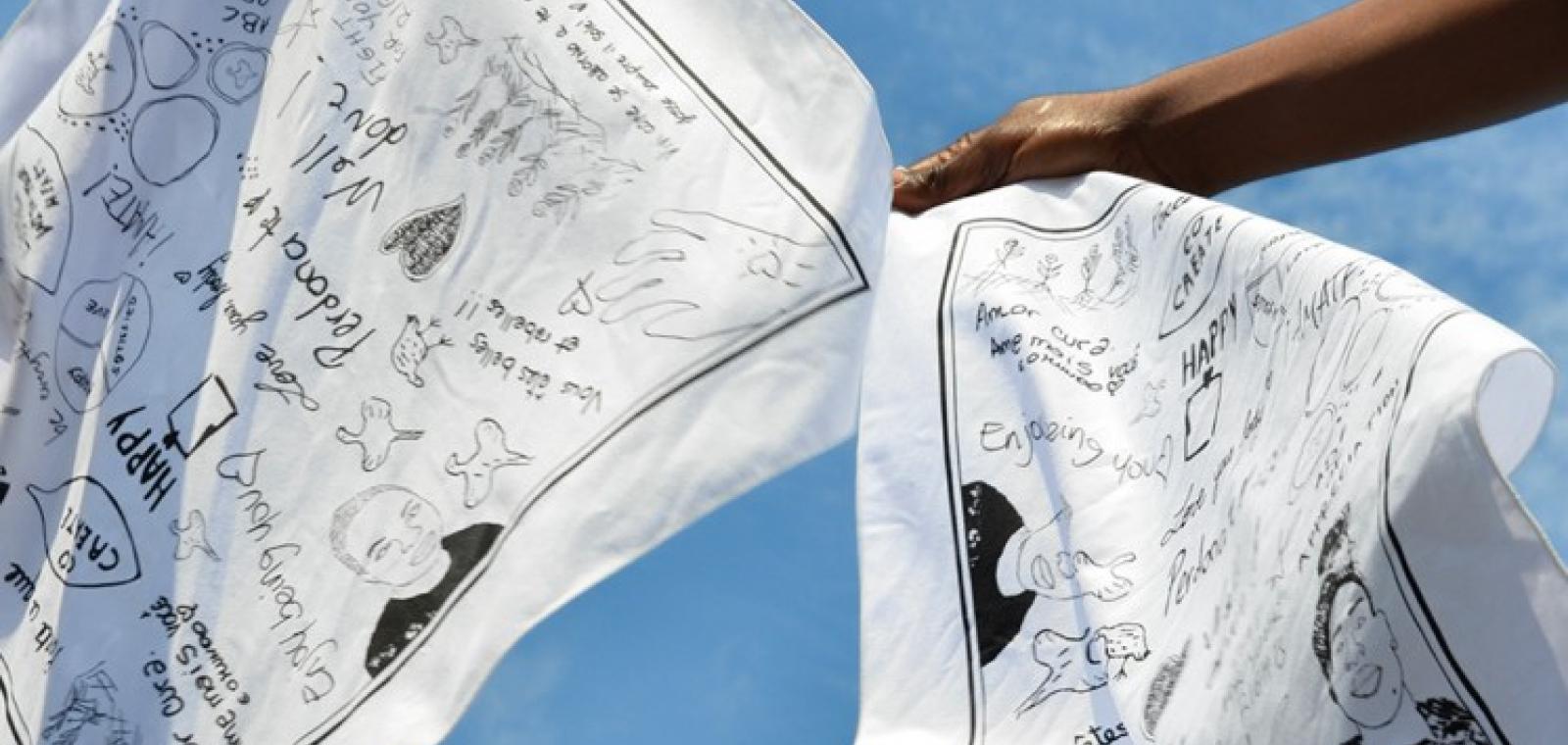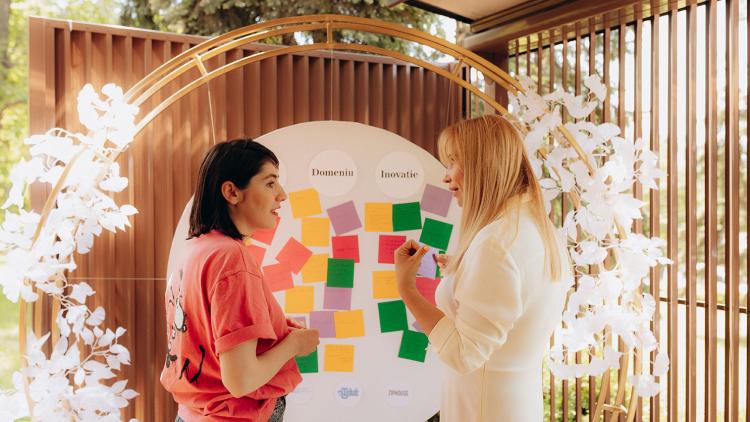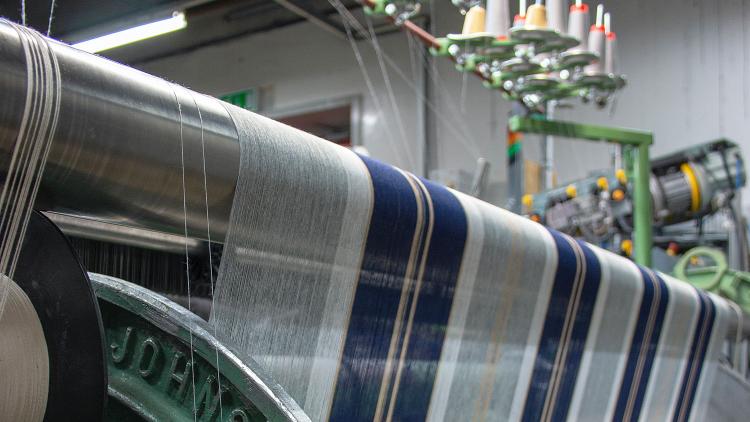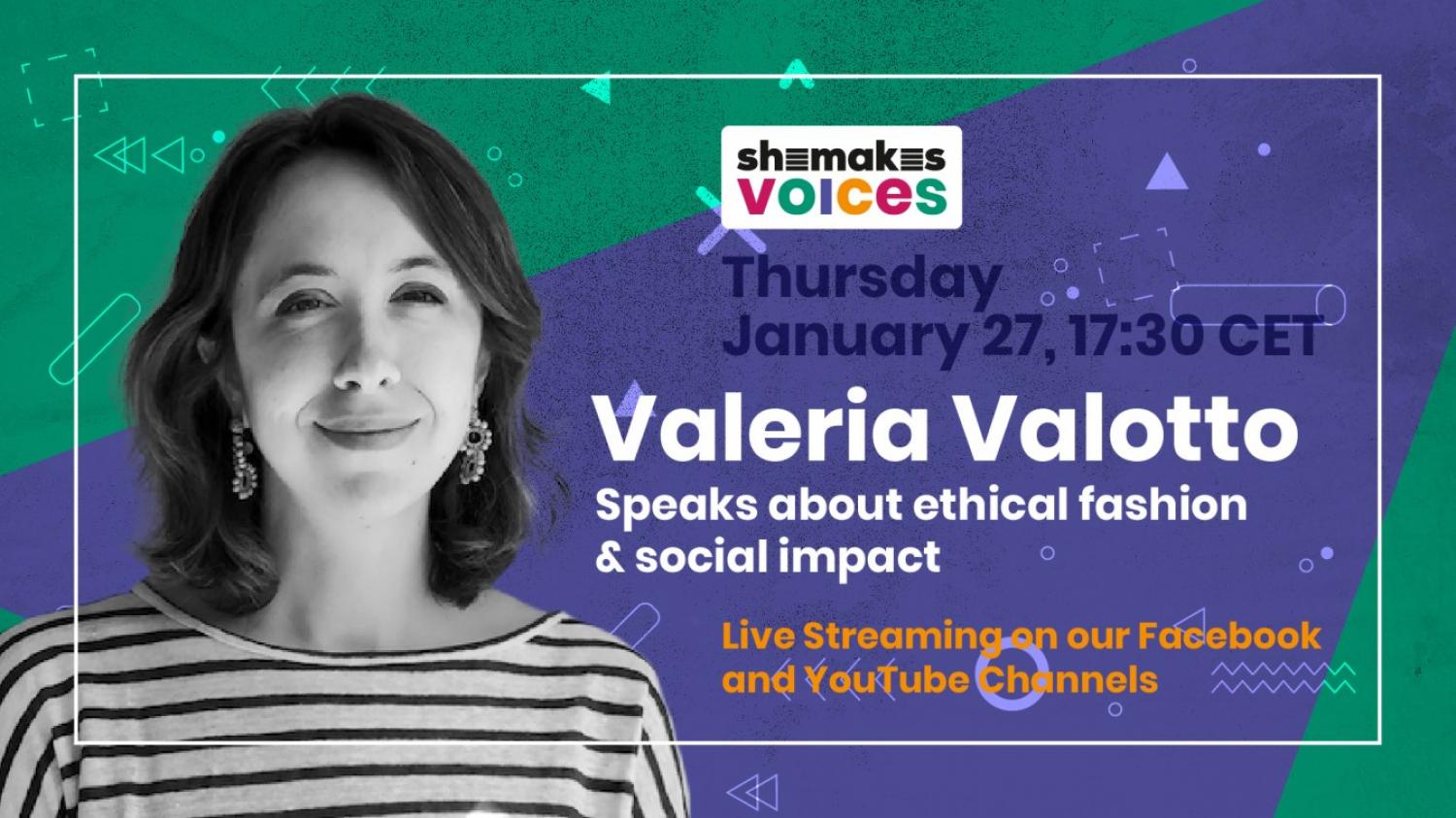
Valeria Valotto speaks about ethical fashion and her upcoming projects as Head of Public Affairs at Progetto QUID.
Valeria Valotto is Head of Public Affairs at Progetto QUID, an Italy-based ethical fashion company that works with major brands such as Zalando, IKEA, OVS and Salvatore Ferragamo. She is in charge of Quid Coop’s fundraising strategy and also designs, implements and evaluates its social impact programmes.
For the shemakes voices series, she was interviewed by Kerstin Junge, Principal Researcher at the Tavistock Institute.
Kerstin Junge: Quid sounds like a super interesting organization; can you tell us a bit more about what it does and what its goals are?
Valeria Valotto: We are a social enterprise and our goal is to change the fashion game. We repurpose excess textiles and fabrics that we recover in partnership with over 50 brands of both fast and luxury fashion and we transform them into limited edition collections of clothing and accessories which are distributed through other companies and our network of ten stores across Northern Italy. We cover the entire value chain from raw materials - which are recovered following ethical and sustainable techniques - to distribution and communication. We firmly believe that limits are just starting points. Where the fashion supply otherwise ends, our collections come alive. Where the labour market discriminates, we see and start cultivating talents and ideas.
KJ: Your training is in classics and language rather than textiles and fashion. How did you come to work in the textiles and clothing sector?
VV: Definitely the idea was to create a space that reflects our values and could help to empower women. I met Anna, QUID’s co-founder, in 2013 amidst the 2013 financial crisis and credit crunch. We were facing a frightening labour market but we decided to go ahead with our project because we really believed in it. Time has proved us right: we are turning nine this year and we are really doing concrete actions to change the fashion world. Also there is a bit of fashionista in every Italian so I guess it was inevitable!
KJ: You are the public affairs and fundraising manager at Quid Coop. What does this role involve?
VV: I boss people around! No, of course not. I am in charge of a department that designs training and empowerment programs for our 150 people between trainees and employees. It is a very diverse group of people coming from 22 different nationalities that speak even more languages. 70% comes from vulnerable backgrounds, while 40% has a neural or physical diversity. My role is to train and motivate both their hard and soft skills, and also find funds to make these programs happen. At the same time, with the collaboration of external evaluators, we have developed a framework to measure the social and societal impact of our products. We are also working on an environmental measurement framework but it is still in its early stage.
KJ: Tell us more about measuring impact. What factors or aspects do you measure?
VV: We measure how a product is impacting within our walls: as an organization, we’re very grounded in our people. We work with independent evaluators that help us to measure parameters such as income, salary and financial self-sufficiency for employees. We are also very attentive in measuring the impact that a product and its story has on both B2B clients and customers. This is done through interviews.
KJ: I noticed that Quid is 83% female and is female led. Do you think that ethical fashion is something more appealing to women?
VV: Ethical fashion probably attracts more women than men, but ethical sourcing is cross-gender. I can’t see any differences. Of course, my perspective might be biased because we produce women's fashion, after all.
KJ: I was interested to find out that part of your role in Quid Coop’s involves developing programmes. Can you tell us about the one that is closest to your heart, and why?
VV: In 2018 we launched “Crisalis,” a training and empowerment program designed for human trafficking survivors. We taught them textile techniques and encouraged them to develop their soft skills through creative expression workshops. These two aspects, the technical and the expressive, merged together into a product: a 100% silk scarf called “Crisalis”. It’s an elegant foulard and contains empowering stories, drawings and keywords that both trainees and trainers shared together through the entire journey. We sold about 400 items and I really like the idea of as many women around the world embracing such an important message through fashion. It makes me very proud.
KJ: What is your company’s vision for the mid-to-long term vision of ethical and sustainable fashion?
VV: We are working in a European network bringing together profit and nonprofit organizations to facilitate the integration of migrant women in the workplace. We are launching on March 8 - quite a specific day - and we can’t wait to start working together towards a more ethical and sustainable industry. I believe there is great potential in collaboration between for-profit and non-profit organizations and we are focusing on this aspect in the mid-to-long term future.
Shemakes voices is the digital interview series that celebrates women innovators in the textile and clothing industry. Each month a partner of the shemakes consortium will dialogue with one of our advisors: a diverse group of women who have succeeded in building movements or services, or exploring innovations and technologies in the textile industry.

